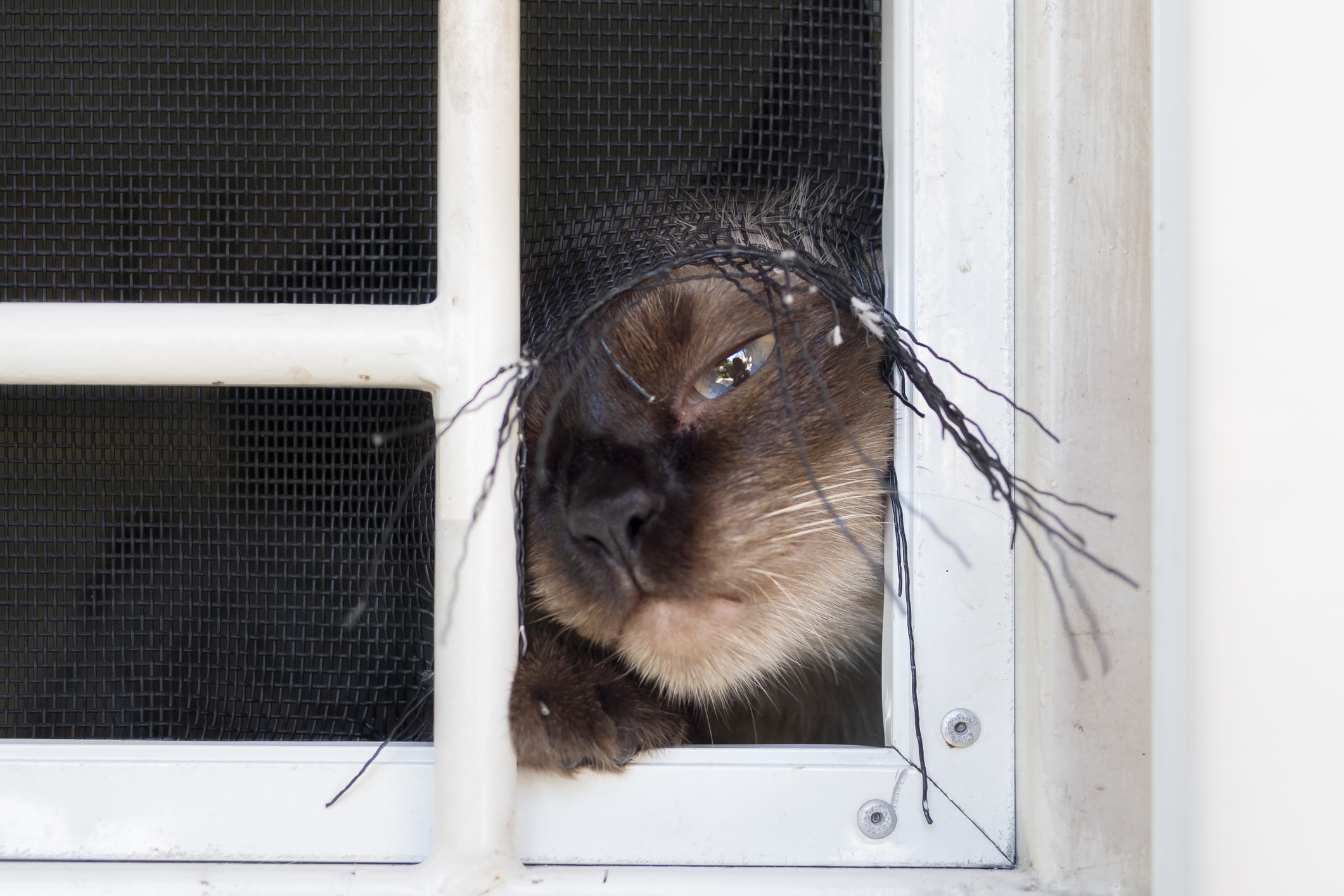Why Dogs and Cats Get Lost: 7 Ways To Protect Your Pet
Doctor of Veterinary Medicine

While efforts are made to answer all questions as quickly as possible, if an immediate answer is required or if your pet is in need of urgent or emergency care, contact your pet's veterinarian immediately.
Doctor of Veterinary Medicine

You will receive an answer from Dr. Lindsay and our vet/tech team as soon as possible, usually the same day.
All answers are provided for informational or educational purposes only, and are intended to be a supplement to, and not a substitute for, the expertise and professional judgment of your pet's veterinarian.
It may be necessary to consult your pet's veterinarian regarding the applicability of any opinions or recommendations with respect to your pet's symptoms or medical condition.
CloseDoctor of Veterinary Medicine

An error has occurred, please reload the page and try again.
CloseDoctor of Veterinary Medicine

While efforts are made to answer all questions as quickly as possible, if an immediate answer is required or if your pet is in need of urgent or emergency care, contact your pet's veterinarian immediately.
There is no answer related to your question

Losing a dog or cat is a pet parent's worst nightmare. From the moment your pet doesn't appear when you call their name, to the sinking feeling that they might never come home, the loss of a pet is a whirlwind of fear, guilt, and heartbreak.
Nobody expects to be unable to locate their pet, yet over 10 million dogs and cats are lost or stolen each year in the United States alone according to the American Humane Association.
In honor of National Lost Pet Prevention Month, learn about the top 7 ways dogs and cats go missing and what you can do to keep your pet safe at home.
1. Check for fence failures and broken boundaries.
A fenced-in yard can be a safe place for your pet to play outside. But it's common for pets to dig under fences, scale walls and barriers, and break open gates.
If you have a fenced-in yard, check periodically for weakened areas and supervise your pet while they're outside. If you use an underground electric fence, keep in mind that many pets still get lost when the equipment loses power, or may forget their training and power through the boundary when fearful or tempted by people or other animals beyond the invisible boundary.
2. Expect pets to run for cover when it's scary out.
Loud bangs and booms, especially from neighborhood fireworks and thunderstorms, can trigger your pet's instincts to run for cover. Fireworks, in particular, do not have to be close by to scare pets, as even those set miles away can give off frightening sounds, smoke, and flashes of light.
Always keep pets indoors during storms and holidays that involve fireworks. Keep in mind that in many neighborhoods, people test fireworks for the days leading up to the holiday, and may continue to play with leftover fireworks a few days afterwards.
3. Watch out for wild prey and predators.
Even if your pet is unable to escape your yard, it may still be possible for wild animals to find their way in. Birds of prey may be able to carry small dogs and cats up to five pounds in weight. Small prey animals like birds, mice, rabbits, and squirrels can tempt pets to chase them away from their homes. Predators like bears, foxes and coyotes can pique your pet's curiosity or may prey upon your pet.
4. Secure windows and doors.

Window screens can tear or pop out, putting pets at risk of getting lost.
If your pet is like most, they love looking out windows and hanging out by the door, waiting for their humans to come home or watching passersby. Make sure windows are secure by installing pet-safe reinforced screens or keeping windows closed. Ensure your pet doesn't dash out the door, especially while you're distracted with guests or groceries, by putting up a pet gate near the front entryway.
5. Beware of pet thiefs.
Out of the 10 million pets that are lost in the United States each year, approximately 2 million are stolen. As you might expect, popular purebred pets are often targeted by thieves to flip for a profit or use for breeding. However, mixed breed and less popular breeds are also at risk. There are reports of pets held for ransom, stolen for use as bait in illegal dog fighting rings, or taken by those who intentionally abuse animals.
Prevent theft by keeping your pet indoors, never leaving them alone in a car, and supervising them when they're outside. Home security measures like cameras, alarms, and locks can be helpful. Additionally, a microchip is undeniable proof of ownership in the event that they are ever sold and taken to a vet.
6. Secure your pet during movements and travels.
It's not uncommon for pets to run off while on vacation, when traveling, or while moving to a new home. These stressful, busy times can leave us distracted, and unfamiliar environments can lead your pet to escape in an effort to find their way home. If traveling by car, make sure your pet is secured in a pet car seat or with a seatbelt compatible harness. Always supervise them in new environments like vacation properties or new backyards, checking for potential escape routes such as gaps in fences or broken locks.
7. Practice your pet's recall.
Does your pet come running when you call their name? Teaching your pet to come when called is a valuable skill that can help if they ever get loose. While dogs are known for their recall abilities, cats can also learn to respond reliably. Practice calling your pet to you before feeding or offering healthy pet treats , associating their name with positive experiences. Avoid calling them before stressful activities like baths or nail trims. That way, they'll associate the sound of their name with food, praise, and rewards, and they'll be more likely to come running back to you after they've escaped.
VISION
Every pet deserves to live a long, happy, healthy life.
 Swipe
Swipe


















